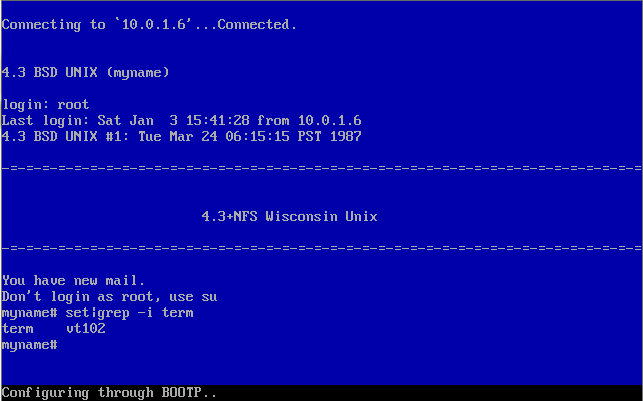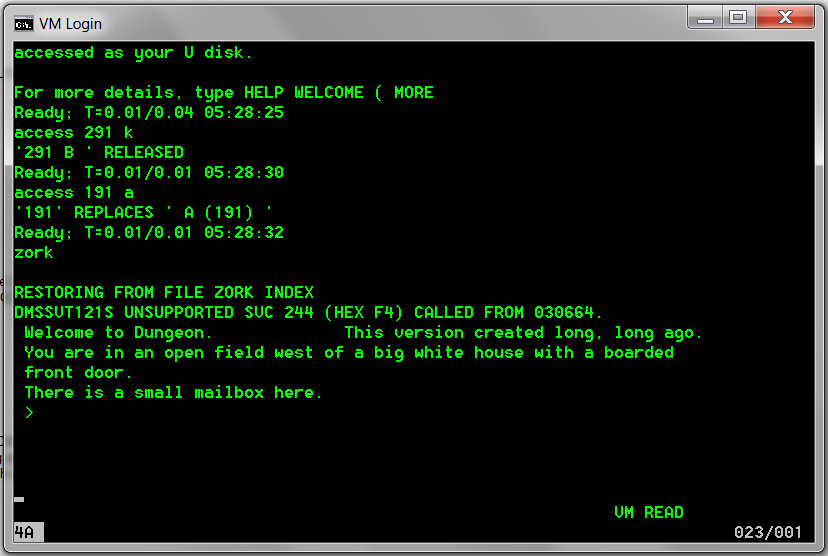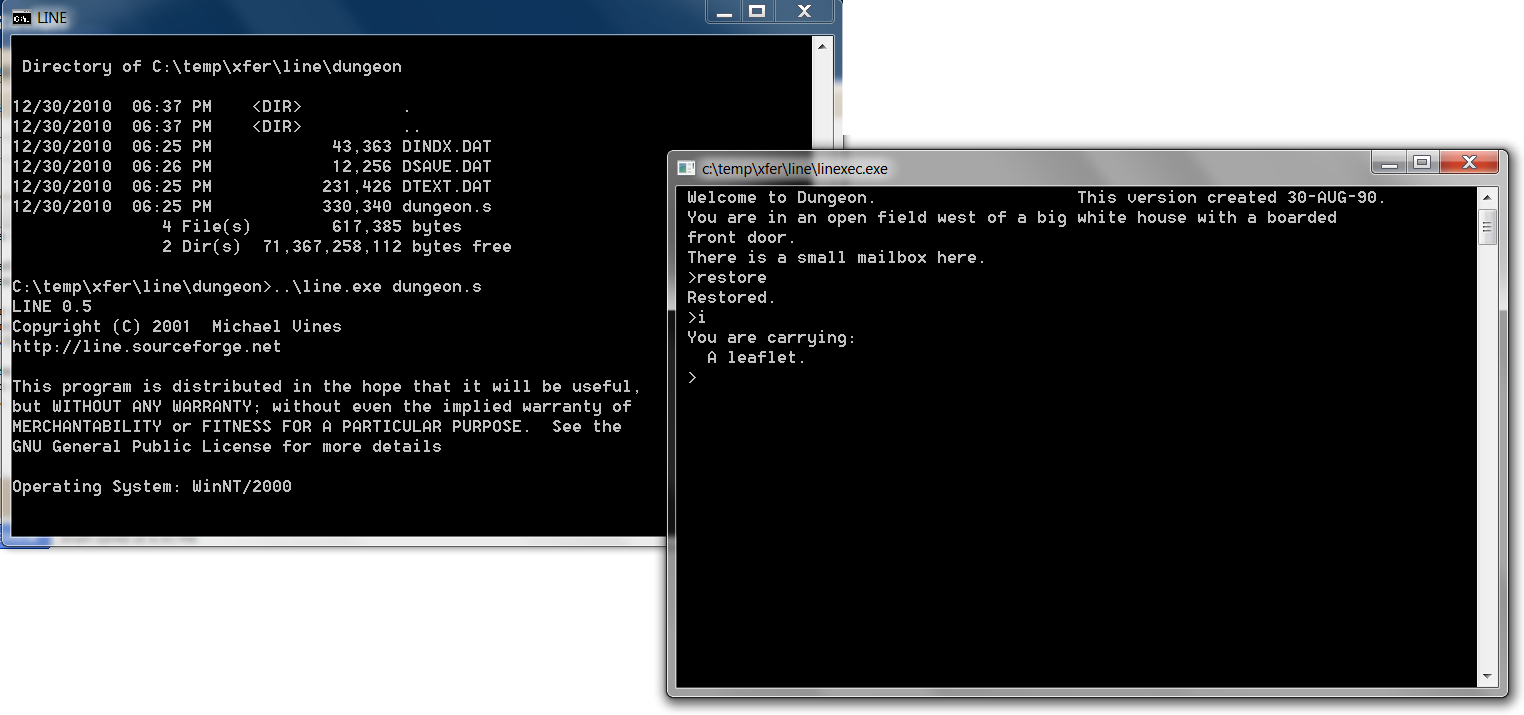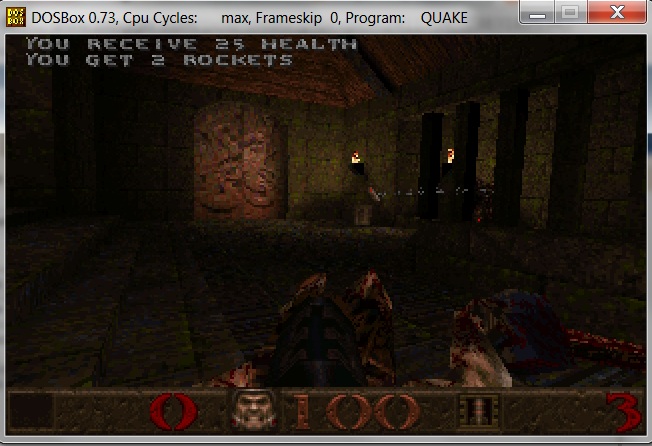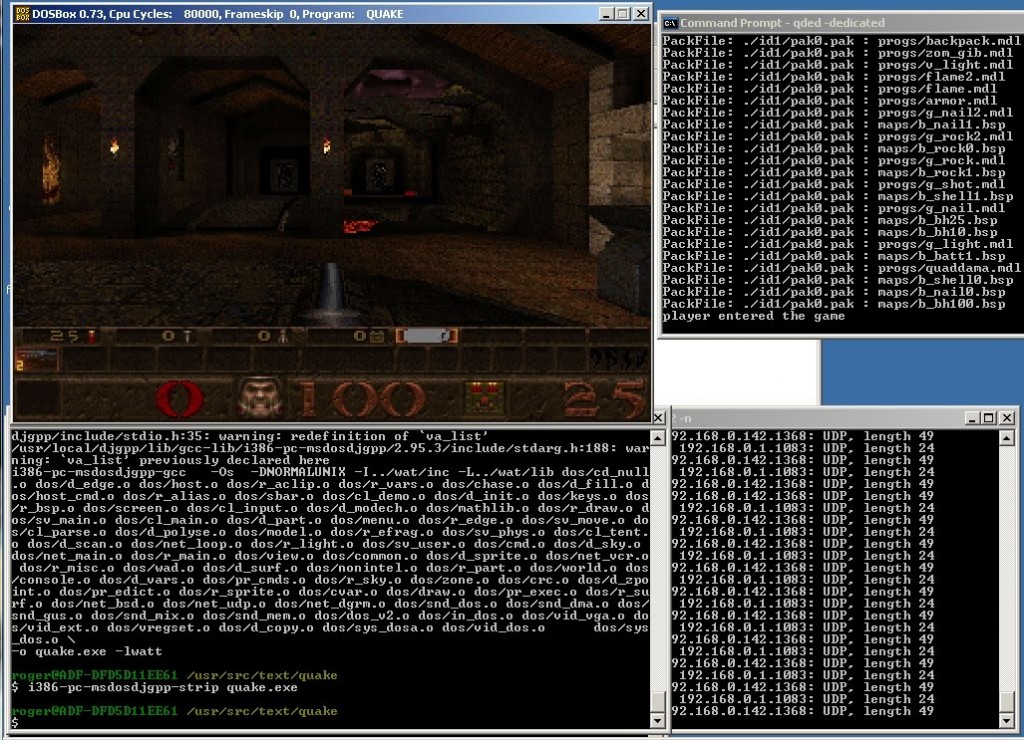
Phew.
As far as I know this was never done, as the world at large moved away from MS-DOS, and of course when Quake 1 on MS-DOS was popular they weren’t exactly giving out the source… Such a shame the DLM thing was lost in the shuffle as DLL’s on DJGPP/MS-DOS could have made quake more modular..
So what I’ve done, is I’ve used an ancient version of cygwin that I was playing around with line, and built a cross compiler for DJGPP. Then using that I’ve built the latest version of Watt-32 tcp/ip with it, then I took my build of Quake 1 on DJGPP, and built quake to use the net_bsd, net_udp, net_dgrm services, and added in the needed hooks for Watt-32 TCP/IP. And to their credit, I just added a single function call to both protocols init functions, and a single function to the general network poll function. All and all I think it’s 3 lines I changed.
Then to test, I used an older copy of DOSBox that included a virtual NE2000 that binds onto a physical interface via libpcap, loaded up the packet ne2000 driver, and ran the client!
For a server, I used the much older, quake dedicated server I had built to run on Windows NT 3.1. Although I never did automatically turn on the ‘-dedicated’ flag for some reason…
On the Windows XP virtual machine, I installed a loopback adapter, then set it up with internet connection sharing so that XP would act as a DHCP server to the Watt-32 TCP/IP stack.
Anyways, as you can see in the picture I connected a simple sniffer, WinDump to watch the packets, and it worked.
I’m still blown away that it worked on the first shot.
It’s really a testament to all the people that make all the moving parts here, when I can just string stuff along and get it to work.
For anyone daring enough, this zip contains all the source, and binaries of all the parts, except for the cygwin install. (I did have to poach a ‘modern’ cygwin1.dll from a modern install).
Enjoy!


